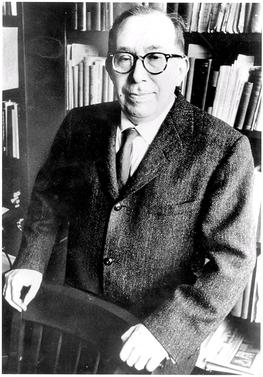
A false dilemma, also referred to as false dichotomy or false binary, is an informal fallacy based on a premise that erroneously limits what options are available. The source of the fallacy lies not in an invalid form of inference but in a false premise. This premise has the form of a disjunctive claim: it asserts that one among a number of alternatives must be true. This disjunction is problematic because it oversimplifies the choice by excluding viable alternatives, presenting the viewer with only two absolute choices when, in fact, there could be many.

Argument from ignorance, also known as appeal to ignorance, is a fallacy in informal logic. The fallacy is committed when one asserts that a proposition is true because it has not yet been proven false or a proposition is false because it has not yet been proven true. If a proposition has not yet been proven true, one is not entitled to conclude, solely on that basis, that it is false, and if a proposition has not yet been proven false, one is not entitled to conclude, solely on that basis, that it is true. Another way of expressing this is that a proposition is true only if proven true, and a proposition is false only if proven false. If no proof is offered, then the proposition can be called unproven, undecided, inconclusive, an open problem or a conjecture. In debates, appealing to ignorance is sometimes an attempt to shift the burden of proof. The term was likely coined by philosopher John Locke in the late 17th century.
Natural law is a system of law based on a close observation of natural order and human nature, from which values, thought by natural law's proponents to be intrinsic to human nature, can be deduced and applied independently of positive law. According to the theory of law called jusnaturalism, all people have inherent rights, conferred not by act of legislation but by "God, nature, or reason". Natural law theory can also refer to "theories of ethics, theories of politics, theories of civil law, and theories of religious morality".
Reason is the capacity of consciously applying logic by drawing valid conclusions from new or existing information, with the aim of seeking the truth. It is associated with such characteristically human activities as philosophy, religion, science, language, mathematics, and art, and is normally considered to be a distinguishing ability possessed by humans. Reason is sometimes referred to as rationality.
In classical rhetoric and logic, begging the question or assuming the conclusion is an informal fallacy that occurs when an argument's premises assume the truth of the conclusion. Historically, begging the question refers to a fault in a dialectical argument in which the speaker assumes some premise that has not been demonstrated to be true. In modern usage, it has come to refer to an argument in which the premises assume the conclusion without supporting it. This makes it an example of circular reasoning.

A fallacy is the use of invalid or otherwise faulty reasoning in the construction of an argument that may appear to be well-reasoned if unnoticed. The term was introduced in the Western intellectual tradition by the Aristotelian De Sophisticis Elenchis.
Special pleading is an informal fallacy wherein one cites something as an exception to a general or universal principle, without justifying the special exception. It is the application of a double standard.
The genetic fallacy is a fallacy of irrelevance in which arguments or information are dismissed or validated based solely on their source of origin rather than their content. In other words, a claim is ignored or given credibility based on its source rather than the claim itself.

Leo Strauss was an American scholar of political philosophy. Born in Germany to Jewish parents, Strauss later emigrated from Germany to the United States. He spent much of his career as a professor of political science at the University of Chicago, where he taught several generations of students and published fifteen books.
Some philosophers distinguish two types of rights, natural rights and legal rights.

Logical reasoning is a mental activity that aims to arrive at a conclusion in a rigorous way. It happens in the form of inferences or arguments by starting from a set of premises and reasoning to a conclusion supported by these premises. The premises and the conclusion are propositions, i.e. true or false claims about what is the case. Together, they form an argument. Logical reasoning is norm-governed in the sense that it aims to formulate correct arguments that any rational person would find convincing. The main discipline studying logical reasoning is logic.
The fallacy of accident is an informal fallacy where a general rule is applied to an exceptional case. The fallacy of accident gets its name from the fact that one or more accidental features of the specific case make it an exception to the rule. A generalization that is largely true may not apply in a specific case for good reasons. It is one of the thirteen fallacies originally identified by Aristotle in Sophistical Refutations.
Early modern philosophy The early modern era of philosophy was a progressive movement of Western thought, exploring through theories and discourse such topics as mind and matter, is a period in the history of philosophy that overlaps with the beginning of the period known as modern philosophy. It succeeded the medieval era of philosophy. Early modern philosophy is usually thought to have occurred between the 16th and 18th centuries, though some philosophers and historians may put this period slightly earlier. During this time, influential philosophers included Descartes, Locke, Hume, and Kant, all of whom contributed to the current understanding of philosophy.

Informal fallacies are a type of incorrect argument in natural language. The source of the error is not just due to the form of the argument, as is the case for formal fallacies, but can also be due to their content and context. Fallacies, despite being incorrect, usually appear to be correct and thereby can seduce people into accepting and using them. These misleading appearances are often connected to various aspects of natural language, such as ambiguous or vague expressions, or the assumption of implicit premises instead of making them explicit.
Philosophy of logic is the area of philosophy that studies the scope and nature of logic. It investigates the philosophical problems raised by logic, such as the presuppositions often implicitly at work in theories of logic and in their application. This involves questions about how logic is to be defined and how different logical systems are connected to each other. It includes the study of the nature of the fundamental concepts used by logic and the relation of logic to other disciplines. According to a common characterisation, philosophical logic is the part of the philosophy of logic that studies the application of logical methods to philosophical problems, often in the form of extended logical systems like modal logic. But other theorists draw the distinction between the philosophy of logic and philosophical logic differently or not at all. Metalogic is closely related to the philosophy of logic as the discipline investigating the properties of formal logical systems, like consistency and completeness.
Vere Claiborne Chappell was an American philosopher and scholar specializing in early modern philosophy, history of philosophy, philosophy of mind and action, and metaphysics.
In argumentation theory, an argumentum ad populum is a fallacious argument which is based on claiming a truth or affirming something is good or correct because many people think so.
Howard Kahane was an American professor of philosophy at Bernard M. Baruch College in New York City. He was noted for promoting a popular, and non-mathematical, approach to logic, now known as informal logic. His best known publication in that area is his textbook Logic and Contemporary Rhetoric: The Use of Reason in Everyday Life, now at the 12th edition, published in 2014.
The fallacy of accent is a verbal fallacy that reasons from two different vocal readings of the same written words. In English, the fallacy typically relies on prosodic stress, the emphasis given to a word within a phrase, or a phrase within a sentence. The fallacy has also been extended to grammatical ambiguity caused by missing punctuation.

Logic is the study of correct reasoning. It includes both formal and informal logic. Formal logic is the study of deductively valid inferences or logical truths. It examines how conclusions follow from premises based on the structure of arguments alone, independent of their topic and content. Informal logic is associated with informal fallacies, critical thinking, and argumentation theory. Informal logic examines arguments expressed in natural language whereas formal logic uses formal language. When used as a countable noun, the term "a logic" refers to a specific logical formal system that articulates a proof system. Logic plays a central role in many fields, such as philosophy, mathematics, computer science, and linguistics.





